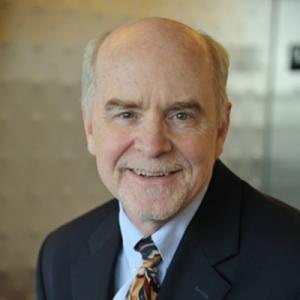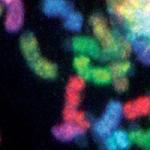
Research Topics
Cytokines are critical for host defense, but are also key mediators of immune-mediated disease. CD4+ helper T cells are important producers of a range of such cytokines, and it is through the production of these factors that they orchestrate immune responses to eliminate a range of microbial pathogens. At the same time, though, helper T cells can also drive autoimmune disease. The goal of the Molecular Immunology and Inflammation Branch (MIIB) is to understand how CD4+ T cells differentiate to selectively produce these key immunoregulatory cytokines and to better define the molecular basis of cytokine action. By studying how engagement of cytokine receptors transduce signals that, in turn, regulate transcription factors and epigenetic events to modulate gene expression, we hope to understand, more in depth, how T cells participate in host defense and contribute to the pathogenesis of immune-mediated diseases. The insights gained from these studies are used to facilitate the development of new therapeutic approaches.
Host defense against pathogenic microorganisms requires extensive communication between innate and adaptive arms of the immune system. Signals from innate immune cells, induced by pathogens and inflammatory stimuli, drive naive CD4+ T cells to differentiate into one of several effector fates, including T helper 1 (Th1), Th2, and Th17 cells (see Figure 1). The products of differentiated T cells subsequently tailor immune responses to effectively eliminate intracellular and extracellular pathogens. Other stimuli cause CD4+ T cells to become regulatory T (Treg) cells, which dampen immune responses. Still, other stimuli allow CD4+ T cells to reside in lymph nodes and provide help to B cells; these T cells are termed follicular helper T cells. These effector and regulatory CD4+ T cell lineages protect the body from infection when appropriately activated, but can also contribute to the pathogenesis of autoimmune diseases.
We now know that a plethora of cytokines is produced by innate immune cells, and that these cytokines are critical for the development and specification of CD4 subsets. A substantial portion of cytokines (more than 60) bind to receptors that associate with a class of protein tyrosine kinases, termed Janus kinases or Jaks (illustrated in figure 2). MIIB first cloned human Jak3, a kinase predominantly expressed in immune and hematopoietic cells, and, with our colleagues, demonstrated that Jak3 associates with the common γ chain (γc). This shared cytokine receptor is used by interleukin-2 (IL-2), IL-4, IL-7, IL-9, IL-15 and IL-21, and we found that mutations of JAK3 underlie autosomal recessive severe combined immunodeficiency. Patients suspected of having JAK3 mutations and other primary immunodeficiencies may be evaluated at the NIH Clinical Center under Protocol 99 AR0004. Because of the critical functions of Jaks in cytokine signaling, pharmacological Jak inhibitors have been developed as a new class of immunomodulary drugs. The NIH holds patents pertaining Janus kinases and identification of immune modulators (United States Patent 7,070,972 and United States Patent 7,488,808). NIAMS also has an ongoing Cooperative Research and Development Agreement (CRADA) with Pfizer, which is part of the ongoing work dedicated to understanding the mechanisms of action of Jak inhibitors in vitro and in vivo .
Biography
John J. O'Shea, M.D., graduated Phi Beta Kappa with a Bachelor of Science degree from St. Lawrence University, and received a Doctor of Medicine degree from the University of Cincinnati. He then served as an intern and resident in Internal Medicine at the State University of New York Upstate Medical University in Syracuse, NY. He came to the National Institutes of Health (NIH) in 1981 for subspecialty training in Allergy and Immunology in the National Institute of Allergy and Infectious Diseases. He did additional postdoctoral work in the Cell Biology and Metabolism Branch in the National Institute of Child Health and Human Development. Dr. O’Shea is board certified in Internal Medicine and Allergy and Immunology.
He started his own group in the National Cancer Institute in 1989, and then moved to the National Institute of Arthritis and Musculoskeletal and Skin Diseases (NIAMS) in 1994 as Chief of the Lymphocyte Cell Biology Section of the Arthritis and Rheumatism Branch. He was appointed Chief of the Molecular Immunology and Inflammation Branch in 2002, and became Scientific Director and Director of the NIAMS Intramural Research Program in 2005. Dr. O’Shea also served as Acting Director of the NIH Center for Regenerative Medicine from 2009-2011. Dr. O’Shea is also an adjunct Professor in the Department of Pathology at the University of Pennsylvania.
Dr. O'Shea has received a number of awards, including: the U.S. Public Health Service Physician Researcher of the Year Award; the Paul Bunn Award in Infectious Disease; the Lee C. Howley Prize in Arthritis Research; and the Irish Society for Immunology Public Lecture Award. He has been the recipient of the National Institutes of Health Director's Award three times (1998, 2008, 2010). He was elected to the Association of American Physicians and the American Society for Clinical Investigation. He is also an ISI Web of Knowledge “Highly Cited Researcher”. He received the NIAMS Mentoring Award in 2003, and the NIH “Make a Difference” Office of Equal Opportunity Award in 2006. He was selected for the NYU Honors Lectureship, the Danny Thomas Lecture, Kenneth Wilske Lecture , Irish Immunology Society Public Lecture Award and the Buffalo Immunology Lecture.
Dr. O’Shea has served on the editorial boards of multiple journals, including: Immunity, Journal of Experimental Medicine, Journal of Biological Chemistry, Journal of Immunology, and Blood. He has been an invited lecturer at numerous universities and international meetings in the U.S., Canada, Europe and Asia.
Dr. O'Shea is one of the co-founders of the NIH/Oxford/Cambridge program in Biomedical Science, is a member of NIH-UPENN Immunology Program, and has served as a Howard Hughes Medical Institute Scholars Advisor.
Dr. O'Shea has authored more than 225 articles. His area of scientific interest is cytokine signal transduction, dissecting the role of Jaks and Stats family transcription in immunoregulation. Dr. O'Shea and his colleagues cloned the tyrosine kinase, Jak3, and demonstrated its role in pathogenesis of severe combined immunodeficiency. Dr. O'Shea was awarded two US Patents related to Janus Family Kinases and identification of immune modulators (7,070,972, and 7,488,808). Dr. O'Shea and colleagues at the NIH identified the role of Stat3 in regulating T cell cytokine production in Job's syndrome. More recently, Dr. O’Shea’s laboratory has employed deep sequencing to understand the epigenetic regulation of T cell differentiation and the role of STATs in these processes.
Selected Publications
- Philips RL, Liao YC, Lau CM, Morrison TA, Jiang K, Hutchinson A, Shayne J, Yao C, Sun JC, Hickman HD, Milner JD, Holland S, Kanno Y, Lionakis MS, O'Shea JJ. An activating Stat1 mutant disrupts normal STAT4 innate lymphocyte programs during viral infection. Sci Immunol. 2025;10(107):eado5986.
- Liu C, Nagashima H, Fernando N, Bass V, Gopalakrishnan J, Signorella S, Montgomery W, Lim AI, Harrison O, Reich L, Yao C, Sun HW, Brooks SR, Jiang K, Nagarajan V, Zhao Y, Jung S, Phillips R, Mikami Y, Lareau CA, Kanno Y, Jankovic D, Aryee MJ, Pękowska A, Belkaid Y, O'Shea J, Shih HY. A CTCF-binding site in the Mdm1-Il22-Ifng locus shapes cytokine expression profiles and plays a critical role in early Th1 cell fate specification. Immunity. 2024;57(5):1005-1018.e7.
- Nagashima H, Shayne J, Jiang K, Petermann F, Pękowska A, Kanno Y, O'Shea JJ. Remodeling of Il4-Il13-Il5 locus underlies selective gene expression. Nat Immunol. 2024;25(12):2220-2233.
- Philips RL, Wang Y, Cheon H, Kanno Y, Gadina M, Sartorelli V, Horvath CM, Darnell JE Jr, Stark GR, O'Shea JJ. The JAK-STAT pathway at 30: Much learned, much more to do. Cell. 2022;185(21):3857-3876.
Related Scientific Focus Areas
This page was last updated on Monday, November 24, 2025




